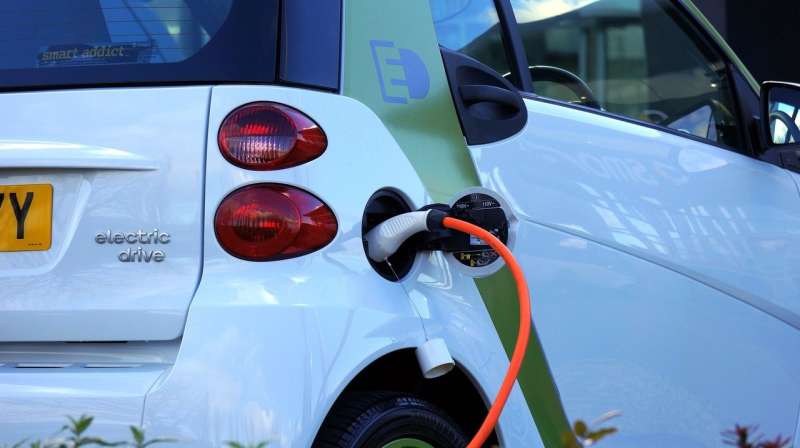Ireland's plan for electric vehicles will reduce emissions, but may come at a cost

The level of emissions coming from Ireland's transport sector are undeniably high, which is of particular concern when considering the country's commitment to a future with lower levels of greenhouse gases, ratified by the 2015 Paris Agreement. The long-term solution to this problem is to shift people from buying heavily-polluting petrol and diesel cars over to more sustainable fuels, with a particular focus being given to electricity. Minister for Transport, Tourism and Sport, Shane Ross, announced an ambition last year in the National Policy Framework for Alternative Fuels that by 2030 all new cars and vans sold in Ireland will be zero-emissions capable. In the same report, an ambition of having 800,000 electric passenger cars on Irish roads was declared, which is challenging considering that just 882 electric cars were sold in 2017, covering 0.7 percent of total sales, bringing the total stock of electric cars up to 3,580.
Researchers from University College Cork, the Danish Technical University, and the University of California, Davis have worked together to build a model capable of understanding why the uptake of electric vehicles in Ireland has been so low, despite a €5,000 grant from the Sustainable Energy Authority of Ireland alongside an exemption from Vehicle Registration Tax up to €5,000. The model found that the concept of range anxiety – the fear of not being able to get to your destination because your car runs out of charge – had a role to play in this slow uptake, but an even greater barrier identified was the lack of variety of electric vehicles currently available for sale in Ireland.
"Car buyers in Ireland are all different, some may want a family car in a particular type of red, while others may want a dark blue car adept to city driving", says Eamonn Mulholland, a researcher at MaREI, the Marine and Renewable Energy Centre at University College Cork. "If you start looking for a particular type of car, you have hundreds of options of petrol and diesel cars to buy, so you're likely to find what you're looking for. If you restrict your search to electric cars, you are much more limited in your choice. If we're to see more electric cars on the road, there needs to be more choice in the type of electric cars available".
This becomes problematic, as there are no Irish based car manufacturers, and the motor industry is entirely dependent on foreign manufacturers to produce a greater variety of electric vehicles before offering more choice to Irish buyers. The model built by Mulholland and his colleagues showed that achieving 800,000 electric cars on Irish roads by 2030 would be technically possible, only if there is a substantial increase in varieties of electric cars available in the coming decades complemented by a continued reduction in the cost of batteries.
While achieving this ambition aids significantly to Ireland's commitment in lowering emissions, it might also come at a cost to the exchequer. At the moment, Vehicle Registration Tax is based off the level of CO2 emissions that a car emits, so if you buy a low-emitting electric car, less revenue will be received by the exchequer. This adds up considerably if all new cars bought by 2030 are electric powered, equating to over €340m per year by 2030 when compared against a 'no change' scenario when you also consider lower amounts of income from annual motor tax, VAT, and, most significantly, losses from excise fuel duty. The cost is however justified by an expected reduction in CO2 emissions by 70 percent in the private car sector by 2050 when compared against 2015 levels.
Mulholland and his team believe their model could be used to assist national policy makers understand what is the best way to encourage the sales of electric vehicles, and to enable a smooth transition with minimum loss to the exchequer. "Changing what fuels we use for our every-day commute is an essential step towards reducing national emissions and ensuring a cleaner environment" says Mulholland. "With adequate planning, the cost of this change can be minimised. Despite the cost incurred, this change remains imperative in adhering to our climate pledges."
More information: Eamonn Mulholland et al. The cost of electrifying private transport – Evidence from an empirical consumer choice model of Ireland and Denmark, Transportation Research Part D: Transport and Environment (2018). DOI: 10.1016/j.trd.2018.04.01
Provided by University College Cork





















